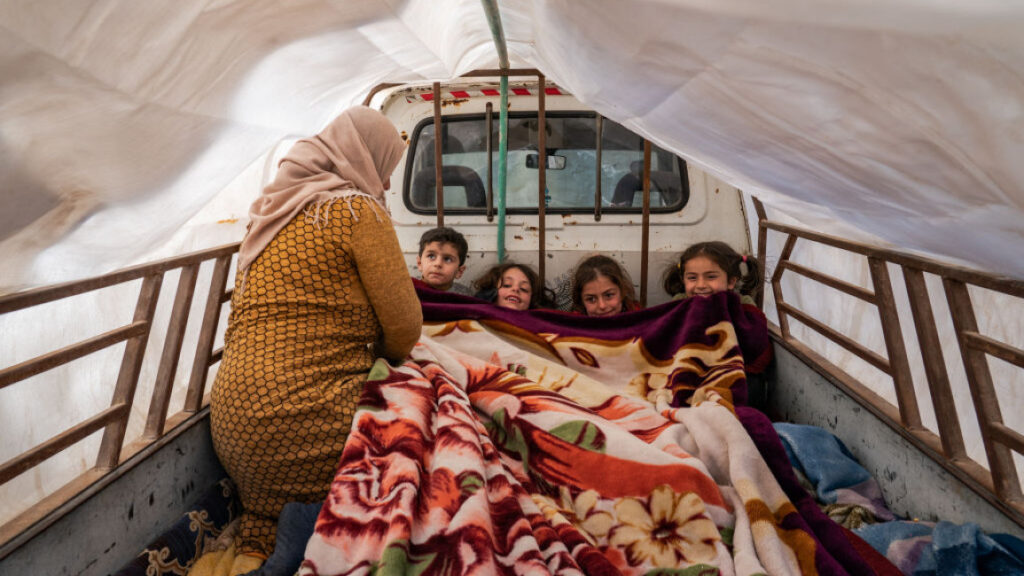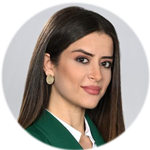The tragic earthquake in Turkey and Syria has led to mass support efforts and solidarity amongst Syrians, Nour Hariri considers whether this will lead to a revival in revolutionary action.

The earthquake was more terrifying than all the killing, bombing, and displacement that we have witnessed in the last twelve years,” uttered many who survived the recent tragedy. People also expressed that despite the tremendous catastrophe, “earthquakes remain more merciful than political tyranny”.
The earthquake in Syria and Turkey has raised the age-old debate about whether focus should be on the natural or the political when it comes to disasters of this scale. There are certainly some who prefer to focus on the ecological aspects in order to distract from an ongoing or prospective political crisis, and then those who do the opposite. There are even those who take a different position altogether and argue that there is no space to consider either or, “it is time for humane and humanitarian action.”
There is no doubt that each of these arguments is limited, largely because it is no longer possible to speak of politics without speaking of nature, and vice versa.
Through the traumatic event, an unprecedented social solidarity has been birthed, comprised of organised collective action, more engagement in cooperative solutions, massive donation campaigns, and the establishment of volunteering groups. Their ability to overcome challenges, rescue the survivors, help the injured, rebuild life after the earthquake is astonishing.''
Indeed, it is impossible to have any discussion about natural disasters such as earthquakes, that collapse entire buildings, without referring to the construction of the buildings. This makes the discussion an inherently political one because it brings into question infrastructure, corruption, and disaster management policies.
As a group of French scientists specialising in the study of natural disasters pointed out, one should no longer speak of “natural catastrophe” because whilst unpreventable natural hazards exist, it is social vulnerability that transforms them into catastrophes.
It is clear that, despite the sorrow and fear that the earthquake brought about for Syrians, an exceptional interaction with this event is taking place amongst the people. An emergence of a ‘new Syrian’ subjectivity is looming on the horizon, a subjectivity that is still stuttering in a new language, crawling on new ground, but clear in its aims.
Through the traumatic event, an unprecedented social solidarity has been birthed, comprised of organised collective action, more engagement in cooperative solutions, massive donation campaigns, and the establishment of volunteering groups. Their ability to overcome challenges, rescue the survivors, help the injured, rebuild life after the earthquake is astonishing.
From information gathering, to reaching the affected areas and helping the families of the victims, Syrians are supporting each other in ways that they haven’t in years. People are also encouraging each other to stand strong and thousands of doctors, nurses, volunteers are working on the ground to help reduce the pain of the injured.
Around the world they are raising their voices, and in saying “no” once again, to all corruption, oppression, and exploitation.
Slavoj Žižek explains that what elevates a catastrophe to the status of an ‘event’, is a rupture in the continuity of history resulting in a revolutionary change and a transformation of subjectivity. Could the violent earthquake become the event that ruptures the flow of the last 12 years? Could the earthquake be an event that engenders a new Syrian subjectivity?
Žižek asserts that the event uproots the existing relations between symbolic objects and discourses (political, religious, sectarian, and other ideologies), so the gaps within the social symbolic structure appear. In the event, the subjects can abandon the illusory ideological constraints imposed upon them by different political regimes of representation.
The post-traumatic subject finds new solutions to its impasse and new ways of being. In this sense, the post-traumatic Syrian subject is automatically liberated from symbolic constraints, the false political hopes and promises, and the logic of either/or. As we have seen over the past few intense weeks, a new possibility has appeared for Syrians, one that has come out of the impossible.
The newness of this event is not in rejecting a specific political reality and therefore hoping to change it. Such rejection, or in other words the first “no”, took place a long time ago. Rather this ‘newness’ is in the rejection of the coercive possibilities that existed and the entrance into a revolutionary social solidarity.
The new Syrian subject has emerged, full of eagerness to meet, help and rescue the other, and recognise his and her right to life, regardless of political affiliations.
The second “no,” contrary to popular belief that it only comes from a humane place, is political. Whereas the first “no” was an authoritarian moral one coming from above, from a superior ideological authority, this second stems from within, from the suffering body and soul, from the material pain.
In his interpretation of the story of the prophet Abraham who was told to sacrifice his son, Emmanuel Levinas states: “that Abraham obeyed the first voice is astonishing: that he had sufficient distance with respect to that obedience to hear the second voice-that is essential.” Indeed, it was the second voice that prevented Abraham from committing a crime. The Syrians too are in dire need of hearing the second inner voice, emerging from their hearts that have rusted waiting for the return of the detained and disappeared.
Ultimately we are all subjects of loss and rupture. Nevertheless, it is from loss, from hopelessness, from impossibility, that we emerge and act.
As William Stanley Merwin wrote in his poem Place: “On the last day of the world, I would want to plant a tree.” We plant a tree today, even if we are unable to enjoy its fruit tomorrow. We spend hundreds of hours searching under the rubble of buildings for bodies that are likely to be found dead. We do that not only for the distressed people who are waiting for their beloved ones, but also for ourselves.
We live, we cling to the other precisely because life would otherwise be impossible. The earthquake has reminded many who have forgotten this, and maybe it has given birth to a new Syrian spirit, possibly even served as the trigger for a future Syrian revolution.

Nour Hariri is a writer, a translator, and the managing editor of an Arabic Journal for political and cultural studies, based in Berlin. She holds an MA in Philosophy from Goethe University and specializes in philosophy, political theory, and psychoanalysis.
